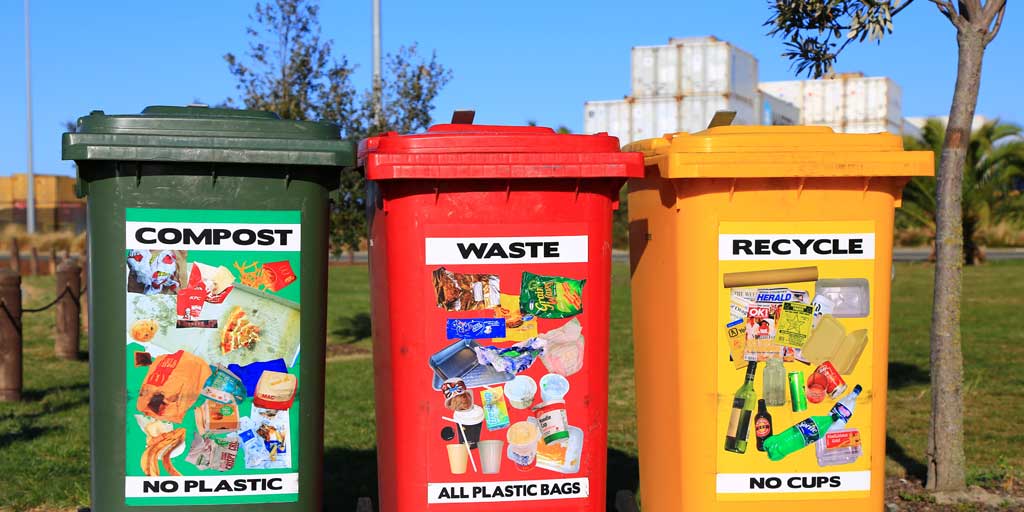
Bin Collector jobs and careers guide
It may not seem glamorous, but refuse collectors play a vital part in keeping our homes and environments clean and safe. It’s an important green career.
Getting into bin collector jobs
You’ll work as part of a small team and be allocated a particular area to cover each day.
You can get into bin collection and recycling through applying for jobs or undertaking waste management BTECs, T Levels or apprenticeships.
Your work is green and clean.
Bin collectors, sometimes called bin workers or refuse collectors, are responsible for removing waste and recycling from homes and business premises. You’ll work as part of a small team and be allocated a particular area to cover each day.
How Much Money Can You Earn As A Bin Collector?
These LMI Job Trends give you a sneak peek of how much you could earn starting out for this career, and how much your salary could grow with experience.
Salary guide for bin collection jobs
Recent labour market information says you can earn on average between £17,000 and £25,000 a year as a bin collector in the UK. If you drive the lorry, this can go up to around £33,000 or more.
Your starting salary can vary because of factors like level of experience, training, or location. Your salary will increase over time as you build skills, knowledge and experience.
Green Careers and Animal / Environmental Careers FAQs
Is there something you’d like to know about environmental careers?
- DID YOU KNOW? You can get into these careers with T Levels!
- 5 tips on getting environmental jobs
- Green careers with the Environment Agency
- What are the UK’s best-paid environmental jobs?
- 5 reasons to explore ABP food industry careers
- You can get health & safety apprenticeships that help you study for a FREE degree!
- Nature volunteering can help your confidence and CV
Skills You Need To Become A Bin Collector
Useful Skills To Put On Your CV:
- People skills. You’ll be working as part of a small team and may have incidental interactions with members of the public. You’ll need to be polite, friendly, and work well with others. Customer service skills count!
- Organisational and time management skills. Being a morning person helps, as bin collectors tend to work early hours.
- A high level of physical fitness and physical skills such as movement, dexterity, and strength (as you’ll be lifting and moving bins and refuse sacks, which can be heavy.)
- Basic computer skills.
- At least a basic understanding of refuse collection and recycling methods – but you’ll get training.
- A working knowledge of health and safety at work (a First Aid qualification is not essential but can be advantageous in this kind of physical job.)
- A driving licence. Some refuse collection jobs will require you to drive the collection lorry, and you’ll need a Large Goods Vehicle (LGV) licence with Category C or C+E. If you don’t have this yet, you may be offered driver training as you gain experience.
Top Skills-Boosting Tip
Read up on the waste collection and recycling system in the UK, and in your area in particular. The specifics, such as which items can be recycled and how different types of waste need to be separated, can be slightly different depending on where you live.
If you’d really like to stand out as you apply, start the process towards gaining your LGV driving licence. Blue Arrow offers a great detailed guide to this process, which includes a medical assessment and a theory test as well as practical training. You can also get LGV driving licences for free with an LGV driving apprenticeship (like the kind Martin Brower offers).
How Do You Get These Skills?
Vocational qualifications and work experience will help you build these skills over time.

Build Your Skills With the FREE Young Professional Programme
What Qualifications & Training Do You Need For Bin Collection Careers?
Apprenticeships
An apprenticeship is a scheme where you train while earning a starting salary. With an apprenticeship (or advanced apprenticeship) you’ll have a paid job with an employer that includes structured training and learning. This training leads to an official qualification that’s recognised by employers as an industry standard.
A Waste Resource Operative apprenticeship or an Intermediate Level Apprenticeship in Sustainable Resource Management is a great choice if you’re interested in the field of refuse collection. These Level 2 qualifications take around 12 months and include a mixture of on-the-job training and classroom-based learning.
Some apprenticeships in this field have a lower age limit of 18 for health, safety, and legal reasons. If you’re not old enough yet or aren’t 100% sure you’re ready to commit to an apprenticeship, there are other types of education you can do to build your skills in the meantime.
A-Levels
You don’t need higher academic qualifications such as A Levels for this career, though you can get them if you want to. Subjects like Environmental Management, Physical Education, and even Geography can be good choices, but you should choose the subjects that interest you the most.
Btecs
As an alternative to A-Levels, you can do BTECs from the age of 16.
There are several BTEC options that can be a good springboard into a waste collection career. You might wish to consider:
- Level 1 Diploma for General Recycling Operative
- Level 2 Certificate for Sustainable Waste Management Operative
- Level 2 Diploma in Sustainable Recycling Activities
- Level 3 Certificate in Environmental Sustainability
- Level 3 Diploma in Environmental Science
You’ll normally need 2 or more GCSEs at grades 9-3 (A*-D) or equivalent for a Level 2 or 3 course. If your qualifications are lower than this, you’ll most likely start on a Level 1 course.
Short courses
If you’d like to learn more about this career path and gain some valuable knowledge that will help you land a job, a relevant short course can help. For example, the Skills Training Centre offers an online vocational qualification in Recycling and Refuse.
Career Progression
As you gain experience, you might be able to progress to the role of team leader or supervisor, overseeing a group of refuse collectors on shift. If your role doesn’t involve driving, you could be offered additional training to enable you to drive the refuse lorry.
With further training, you could progress to a role such as Waste Management Operative or Recycling Officer. You could also go to work for a company as a waste management specialist.
What Work Experience Do You Need For Bin Collector Jobs?
Work Experience Tips
It can be difficult to gain relevant work experience as a Bin Collector as it is illegal for anyone under 18 to work in this role. However, you can still gain work experience that will help you to stand out when you come to apply for jobs.
Any role that involves working with people will serve you well, such as customer service jobs. Jobs that involve highly physical work will also look good on your CV as they will prove that you have the strength and stamina necessary for this role.
The ability to use and maintain tools and mechanical equipment is an advantage in this job, so any work experience that involves working with your hands is also a great choice.
Examples of relevant work experience include:
- Work shadowing (even if it’s just for a day)
- Work placements in a company
- Work experience placements on a college or university course
Volunteering Tips
You can build your skills in your own time to enhance your application when you come to apply for refuse collection jobs. The most important thing is to educate yourself about current best practices in waste disposal, refuse management, and recycling and to keep your knowledge up to date.
If you are keen to volunteer, then consider working with or raising funds for an environmental charity. This directly relates to the waste and refuse collection industry and shows that you have a passion for issues relating to how waste is handled.
Keeping fit and healthy is also important, so why not get involved with sports as an extracurricular activity?
What Does A Bin Collector Do?
A Bin Collector, or Refuse Collector, collects waste and recycling from both households and commercial premises. Working on a refuse lorry with a small team of colleagues consisting of several loaders and a driver. You may work in the same area each day, or be assigned a different location to cover for each shift.
Example daily job responsibilities
- Moving wheelie bins, refuse bags, and recycling boxes
- Using a lifting mechanism to empty bins into the lorry
- Crushing waste
- Sorting recyclable from non-recyclable waste
- Emptying public litter bins
- Emptying large receptacles such as skips
- Collecting large items such as furniture or carpets
- Navigating or guiding the driver
- Recording important information such as the amount of waste collected
- Handling hazardous items such as chemicals or hospital waste
- Driving the refuse lorry
- Routine maintenance of the lorry (e.g. checking oil, water, fuel, and tyres)
- Delivering waste to the refuse tip or incinerator
- Report any problems with waste collections
How To Find Bin Collector Jobs: Next Steps
To find jobs for young people in this role, search on jobs boards for early career roles with these words in the title:
- Bin Collector
- Refuse Collector
- Bin Worker
- Bin and Refuse Loader
- Bin Collection Driver
- Waste Collector
Some sites unfortunately still use outdated language such as “bin man” for this job, though this is becoming less common as people of any gender can do this job!
If you choose to do an apprenticeship, you may be offered a job at the end of your training. While this is not a guarantee, many employers will look more favourably on your application if you have completed an apprenticeship.
Otherwise, you can also apply directly to jobs in this field. Most Bin Collector jobs are advertised by local councils like Surrey County Council, but you can also try jobs boards online such as Indeed, Reed, Monster, and LinkedIn.
You can also take a look at our database of local opportunities to see if there are any relevant jobs, work placements, or careers events and workshops to help you get started.
Get Into Environmental and Green Careers With Youth-Friendly Employers
These employers and organisations are here to help. They care about your potential and desire to learn, not just your qualifications and experience. They may be able to offer traineeships, apprenticeships, graduate schemes, first jobs, careers advice, wellbeing support and much more.
Agriculture, Animal & Environment Career Tips & Opportunities
Have You Thought About These Agriculture, Animal & Environment Careers?
View job descriptions with average UK salary, useful qualifications and a wide range of routes into each career.
See All Our Youth-Friendly Employers

























YES! I Want More Free Careers Help...
So what are you waiting for? Grab your future.





























